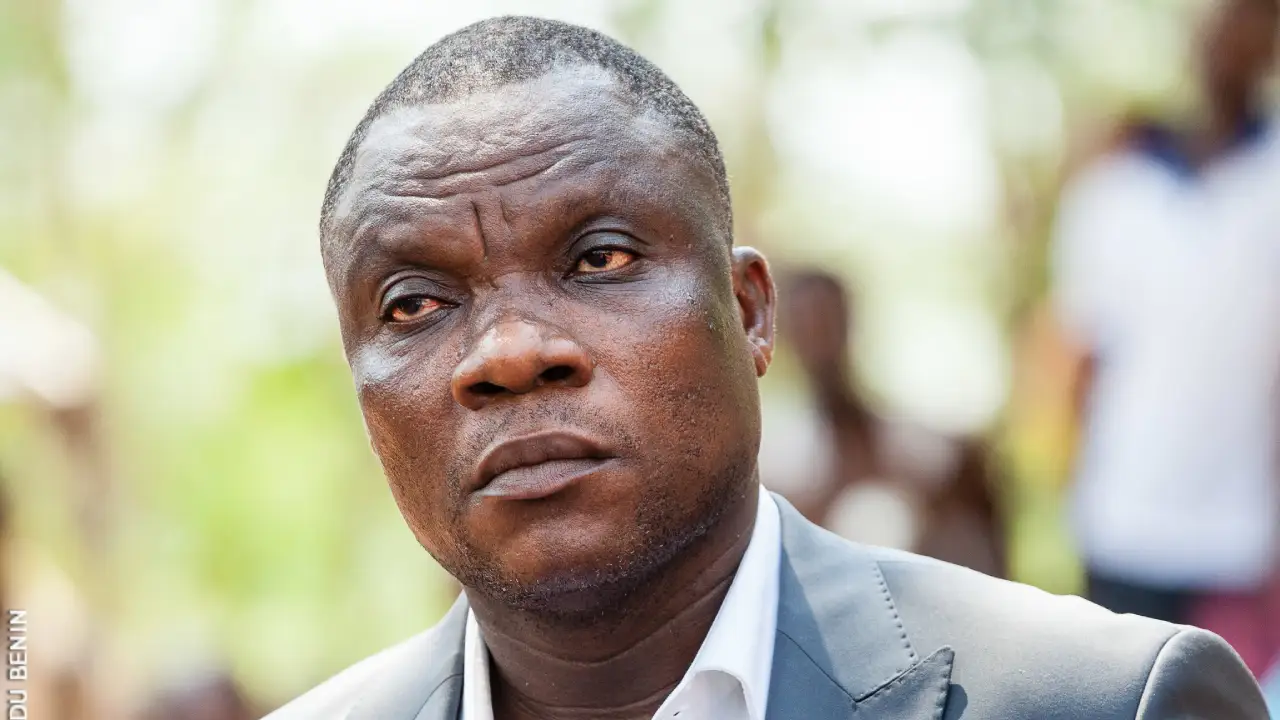“I want to be proven wrong on live TV”: Jacques Ayadji stands firm and challenges his critics
Appearing on Canal 3 Bénin’s Sunday political talk show, Jacques Ayadji, ministerial adviser on infrastructure and president of the Moele-Bénin party, delivered a dense, often combative and always strategic interview. Facing criticism from the opposition—particularly the Les Démocrates party—he reaffirmed the cohesion of the presidential majority and vigorously defended the government’s record. Without hesitation, he said he is ready for a public debate “to be proven wrong in front of the Beninese people.”

SUMMARY
During the hour-long exchange, Ayadji reviewed the major infrastructure projects launched since 2016, defending the government’s achievements in road construction, sanitation, and digital services. He acknowledged some delays, notably in Tchaourou, but pledged close monitoring: “We want to complete 100% before 2026,” he said. “We’ve delivered, and now it’s time to make it known.”
According to him, the visible transformation in major cities—and increasingly in rural areas—is evidence of the effectiveness of government action. From digitalization of public services to the sanitation of Cotonou and newly paved roads, Ayadji claimed that Beninese citizens are witnessing a true transformation.
“We score well over 17 out of 20,” he estimated.
Asked about the ongoing corruption case involving political figure Richard Boni Ouorou, Ayadji declined to comment, citing “republican discipline and the need to respect the secrecy of the investigation.” Nonetheless, he affirmed the principle of presumption of innocence and said he was “impressed” by Ouorou’s political commitment prior to the affair.
Opposition: “Misinformation and lack of credible alternatives”
Ayadji didn’t hold back when addressing members of the opposition Les Démocrates party, especially Nourénou Atchadé and Guèdègbé Moutairou. He accused them of “constant manipulation” and claimed they fuel public controversies to conceal their lack of a viable political program. On the issue of the National Assembly’s new building, he promised to invite critics to visit the site themselves: “I want to be proven wrong on a TV set, in front of the Beninese people,” he declared.
He explained the reportedly low construction completion rate as a consequence of expanded project scope: “If you’re asked to build a bedroom and living room, and then you’re asked to add two more rooms, of course your completion rate changes.”
Presidential race 2026: no fusion, no candidate (yet)
With major political maneuvering on the horizon, Ayadji remained deliberately vague on the presidential majority’s strategy for the 2026 elections. He reaffirmed that President Patrice Talon is the “coach,” the only one empowered to decide when and how to announce the candidate(s). “Every camp has its own strategy… and sometimes, silence is part of it,” he said.
Asked about the possibility of a merger between pro-government parties, he dismissed the idea, instead raising the possibility of backing one or more presidential tickets, depending on the political landscape.
Facing criticism over the Glo-Djigbé Industrial Zone (GDIZ) and the treatment of soybean producers, Ayadji again took the offensive. He defended protectionist policies as necessary to safeguard local industry from international dumping practices: “Economic patriotism means producing what we consume and consuming what we produce,” he insisted.
On claims that workers in the GDIZ are underpaid, he clarified that these are not salaries but stipends given to apprentices undergoing state-sponsored training. He decried the opposition’s communication as a “deliberate smear campaign” and called for a public debate to set the record straight: “I won’t debate with someone who doesn’t know the subject. I want a worthy opponent.”
A call for public debate
Jacques Ayadji closed his appearance with a direct challenge to his opponents. He said it’s time to move beyond political monologues on television and embrace real, face-to-face confrontations that respect the people. “The Beninese people deserve genuine debates,” he concluded.


Comments